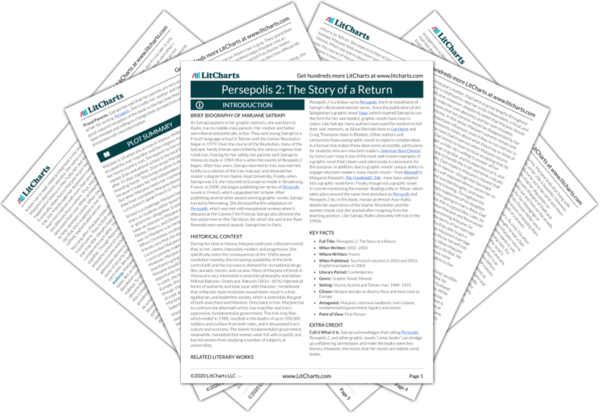AI ToolsNew
Tools to make learning and teaching easier
|
Previous
The Pill
|
Persepolis 2: The Story of a Return: The Vegetable Summary & Analysis |
Next
The Horse
|


Upgrade to unlock the analysis and theme tracking for all of Persepolis 2: The Story of a ReturnPersepolis 2: The Story of a Return!
Get LitCharts A+